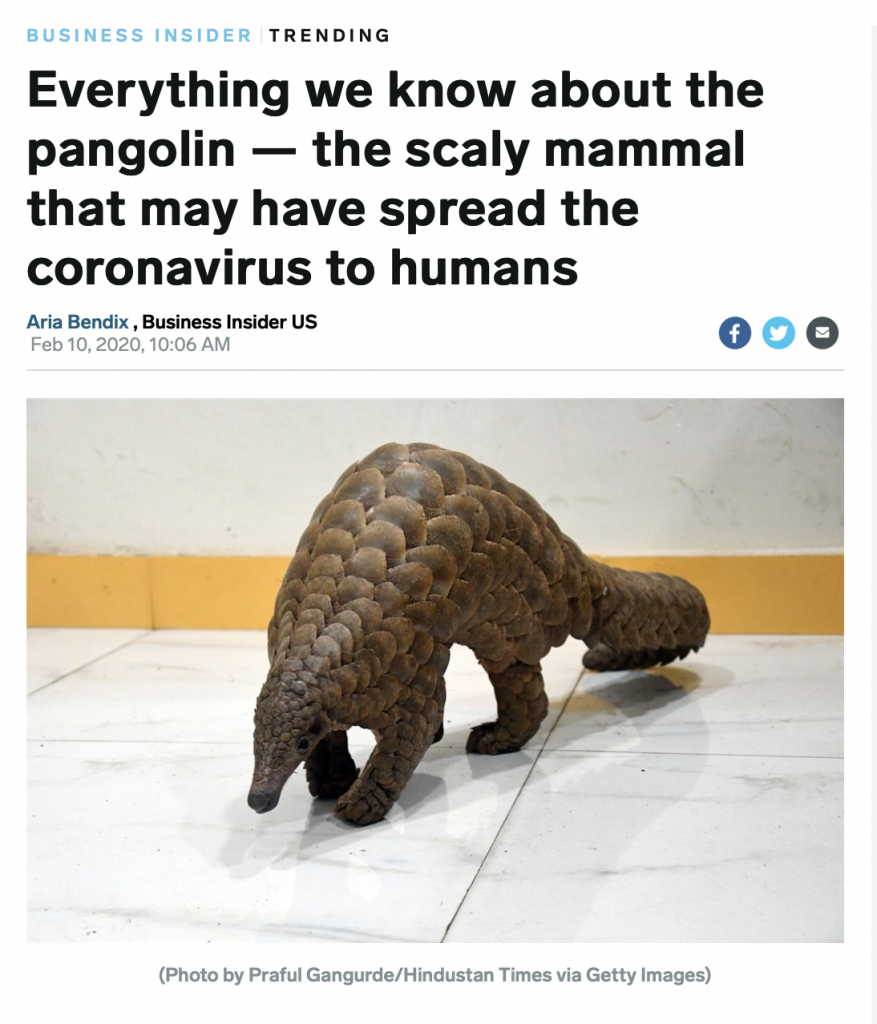A group of researchers from South China Agricultural University found that samples from coronavirus patients were 99% identical to samples of the virus taken from wild pangolins, according to China’s official Xinhua news agency. Their research hasn’t been published or confirmed by other experts, but scientists say the results make sense, given what we know about the animals.
Pangolins are often poached for their keratin scales, which used as ingredients in traditional Chinese medicine. Their meat is also considered a delicacy in China and Vietnam.
If bats drop feces or saliva onto food that’s consumed by a pangolin, the animal can become a carrier of the coronavirus. Humans can then be exposed by consuming pangolins before the virus is transmitted from person to person.
Video: Pangolins: The Most Trafficked Mammal You’ve Never Heard Of | National Geographic
